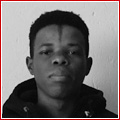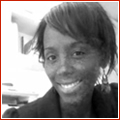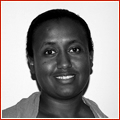Posted: 29 September, 2022 | Author: AfricLaw | Filed under: Sandile Nhlengetwa | Tags: admonishment, Advocate Teffo, assault, Attorneys Act, contemptuous behaviour, Disbarment, disgrace, dishonesty, High Court, intimidation, Jasat v Natal Law Society, lack of integrity, misconduct, scandalising the Court, South Africa, South African Legal Practice Council v Teffo, violating Legal Practice |
 Author: Sandile Innocent Nhlengetwa
Author: Sandile Innocent Nhlengetwa
LLB candidate, University of the Western Cape
In an unreported judgement in South African Legal Practice Council v Teffo (10991/21) [2022] ZAGPPHC 666, Adv Malesela Teffo was removed as a legal practitioner. A total of 22 complaints from 2019 to 2022 were filed with the Legal Practice Council (LPC), a statutory body responsible for regulating the legal profession, against Adv Teffo. These include intimidation, assault, contemptuous behaviour, bringing disgrace upon the Court’s moral authority, violating the Legal Practice Act 28 of 2014 (the LPA) on numerous counts and misappropriating of clients’ funds. In this regard, the LPC filed a motion with the High Court to have him disbarred. In its notice of motion, the LPC outlined the basis upon which they seek an order to strike Advocate Teffo off from the roll of legal practitioners. Adv Teffo replied with a bare denial in essence pleading not guilty to all these complaints.
Read the rest of this entry »
Posted: 4 March, 2015 | Author: AfricLaw | Filed under: Thato Motaung | Tags: banned, Eritrea, Eritrean Orthodox Church, Evangelical Lutheran Church, faiths, freedom of religion, intimidation, Jehovah’s Witnesses, penalties of arrets, Roman Catholicism, social exclusion, social justcie, Sunni Islam, World Day of Social Justice |
 Author: Thato Motaung
Author: Thato Motaung
Researcher, Centre for Human Rights, Faculty of Law, University of Pretoria
World Day of Social Justice – 20 February 2015
Social justice becomes a reality when social protection measures against discrimination and marginalization are enforced, thus targeting systemic social injustice and differential treatment. This is what the United Nations General Assembly aimed at emphasizing when it proclaimed The World Day of Social Justice on 20 February 2007.[1] The advancement of social justice requires the removal of such barriers which discriminate against people based on – but not exclusive to – their age, gender, religion, culture, ethnicity or disability.
In Eritrea, religion can be a basis for differential treatment and persecution. A 1995 Presidential Decree declared that the country would recognize only four religions: the Evangelical Lutheran Church, the Eritrean Orthodox Church, Roman Catholicism, and Sunni Islam. The 1997 Constitution guarantees freedom of religion, but because it was never implemented, the Decree trumps this right. All other faiths were banned and those who practice them would incur penalties of arrest, detention in inhumane conditions, intimidation and even social exclusion.
Makda[2], a young Eritrean girl, recounts how her father was expelled from his government job and left with no income to support his wife and seven children for being a Jehovah’s Witness.
“Our family were called “traitors” and our neighbours harassed us when we went outside. One day my parents and I were arrested during a religious gathering – I was only 14 years old. After three days, locked up in a cold prison cell with my mother, the officer released me with a warning: “Do not follow your parents’ religion or you will be expelled from school”.
Read the rest of this entry »
Posted: 11 November, 2014 | Author: AfricLaw | Filed under: Thato Motaung | Tags: African Commission on Human and Peoples’ Rights, censorship, Crackdown, dissent, Eritrea, freedom of expression, human rights, imprisonment, impunity, International Day to End Impunity for Crimes against Journalists, intimidation, journalists, right to information |
 Author: Thato Motaung
Author: Thato Motaung
Researcher, Centre for Human Rights, Faculty of Law, University of Pretoria
International Day to End Impunity for Crimes against Journalists: 2 November 2014
In a land where the right to freedom of expression and information is heavily curtailed, I sought to interview three exiled Eritrean journalists and allow them the space to freely express what they cannot in their country.
Why did you choose to become a journalist?
*Aman: “I used to be a development worker; I was taken to prison camps and three times I saw people tortured and killed. I started to write stories and post articles on what was happening…I became a journalist by accident – all I wanted to do was contribute to justice”.
Since Eritrea’s “liberation” from Ethiopia in 1991 and its international recognition as an independent sovereign state in 1993, the country gradually evolved into a nation rife with human rights abuses. Notably, the systematic attack on dissent of any form resulting in extrajudicial killings, torture, arbitrary arrests and indefinite incommunicado detentions.
What does freedom of expression mean to you?
Aman:” It is a symbol of democracy- the flow of information without fear or restrictions – the means to freely enlighten and educate”.
18 September 2001 was coined as the Eritrean government’s ‘Crackdown’ on all independent media, when it banned the entire private press by shutting down media houses. It also marked the end of dissenting voices at the political level. Eighteen journalists, as well as eleven political leaders were rounded – up and imprisoned incommunicado without trial. Their whereabouts are still unknown till today. Since then, more than 70 journalists have been detained at different periods in time.
Read the rest of this entry »
Posted: 11 June, 2012 | Author: AfricLaw | Filed under: Esete B Faris | Tags: African Charter on Democracy, civil society, CSOs, Egypt, elections, Eritrea, Ethiopia, freedom of association, funding, governance, human rights monitoring, intimidation, limitations, registration, Zimbabwe |
 Author: Esete B Faris
Author: Esete B Faris
LLM (Human Rights & Democratisation in Africa) student, Centre for Human Rights, University of Pretoria
The role of civil society cannot be underestimated in Africa. Despite the fact that several governments are suppressive, there is widespread circulation of information on human rights abuses and successes. This is attributable to the immense role that civil society plays. Without a civil society in Africa, the world would not hastily recognise the shortcomings of African leaders’ regimes.
It is undeniable that an independent and effective civil society contributes to the protection and promotion of democracy and human rights in a country. The role of Civil Society Organisations (CSOs) is to serve as a watchdog at the domestic level and international level. This implies that the right to freedom of association is essential for CSOs to operate effectively and efficiently.
Read the rest of this entry »
 Author: Thato Motaung
Author: Thato Motaung Author: Esete B Faris
Author: Esete B Faris
 Author: Sandile Innocent Nhlengetwa
Author: Sandile Innocent Nhlengetwa